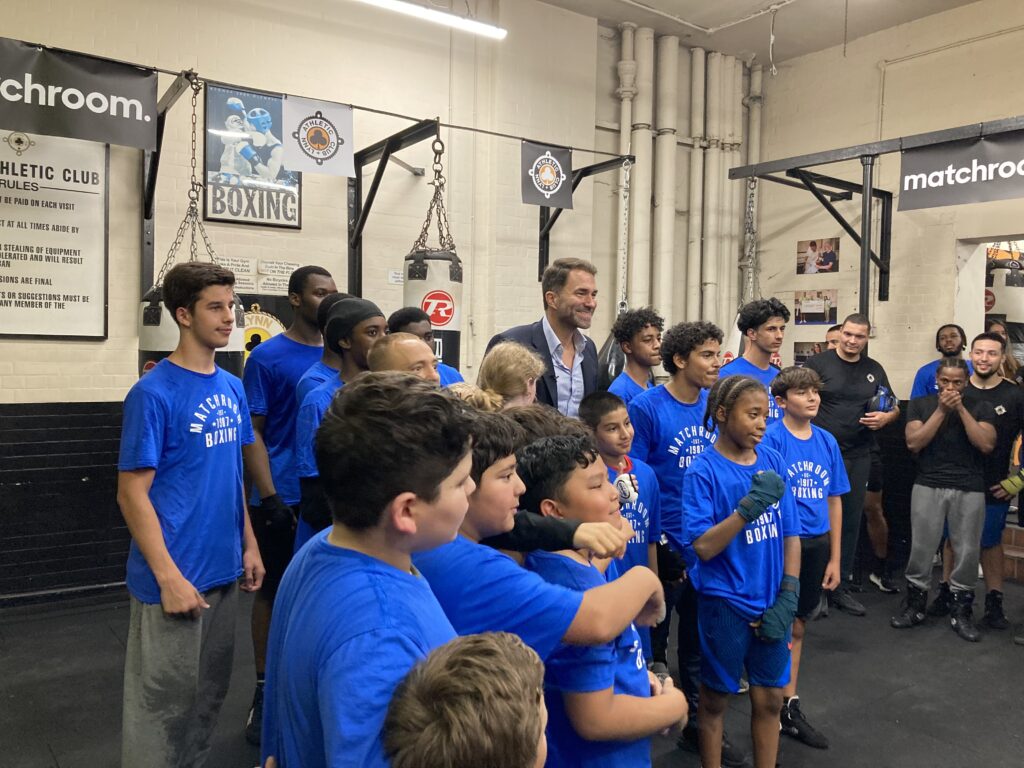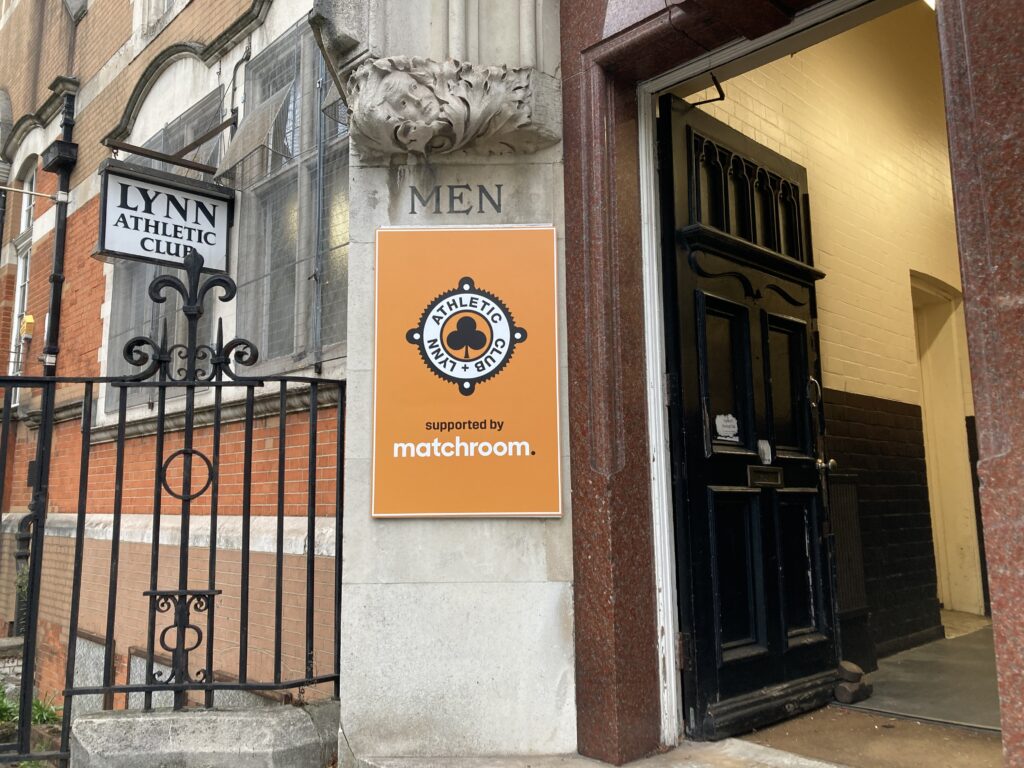Lynn AC Boxing Club reopens after £10,000 donation from Eddie Hearn
A common misconception is that boxing is sufficiently funded across the board.
This narrative has emerged largely due to pay-per-view events being staged in Las Vegas and, in more recent years, the Middle East.
Tyson Fury’s glorified exhibition with debutant Francis Ngannou offers a useful example, as the heavyweight world champion has now lined up a second astronomical paycheck, this time against fellow undefeated champion Oleksandr Usyk, in association with Riyadh Season – an entertainment and sports initiative in Saudi Arabia.
While this is good news for fans, who are able to see the fight they have long been waiting for, it is not representative of the sport as a whole and, more importantly, the lack of funding that is available for amateur boxing in this country.
Every sport relies heavily on the development of talented athletes at a grassroots level, and boxing is no exception. However, amateur clubs are under an immense amount of pressure to meet England Boxing’s minimum standards with regards to safety and the quality of equipment that is used.
This has led to certain clubs being forced to close down. England’s oldest continuing amateur boxing club, the Lynn AC, was faced with this daunting reality in July. But following a £10,000 donation from Eddie Hearn of Matchroom Sport, the Camberwell-based club was able to reopen its doors on Thursday last week.
Eddie said: “There’s no council, no government and no Mayor of London’s office here tonight; it baffles me really. I would have paid that amount of money to bring them down here.
“These places are like homes, but people in power don’t see it because they don’t mix in areas like this.”

According to Sport England and Sheffield Hallam University’s 2017 report on affiliated sports clubs, around 38% of amateur boxing clubs were located in 20% of the most deprived areas in England. Supporting data for this study was gathered from the 2015 Indices of Multiple Deprivation (IMD) decile.
Now, with six years having passed, amateur gyms are fighting to remain open, which represents a major concern for the struggling communities where they exist.
“[The coaches] are the most fascinating people really. Could you imagine giving up 4-5 hours of your time for free? They are heroes in the community and we owe it to them to stay open,” Eddie added.
Any high-profile boxer would have more than likely began their journey at an amateur boxing club. Many will say that the mentorship they received from coaches was instrumental to their development, both in and out of the ring.
This is true for IBF world flyweight champion Sunny Edwards, who spoke about his experience at the Lynn.
He said: “I used to train here, and there are loads of fighters I met in this gym that are now some of the star names in British boxing.
“This is where the youth can get a positive impact on their lives. In my childhood, boxing was the best part of my week. It is a safe place for children who come from much tougher backgrounds than I even did.”
Boxers will often reveal that the sport either saved them or made them, almost to the point that it has become somewhat repetitive. But how often do you hear athletes in other sports project this same message?
The Department for Culture, Media and Sport (DCMS) published its research briefing on UK sports funding for individuals, organisations and teams in August 2023, outlining three forms of Government funding from 2022 to 2025. One of which specified that, within the three year window, £30 million would be invested into 4,500 public courts identified by the Lawn Tennis Association (LTA) as needing refurbishment.
There is something to be said for the fact that, once again, in reference to Sport England and Sheffield Hallam University’s 2017 report, just 3% of tennis courts were located in 20% of the most deprived areas. This would not usually matter, but considering that the DCMS highlighted in their grassroots multi-sport facilities programme – a form of funding for football clubs – that they would deliver improved facilities in deprived areas, it is difficult to understand why boxing is unable to receive a similar, or at least partially comparable, form of investment.
Lead commentator for DAZN, Mike Costello, gave his thoughts on the social implications that could be drawn from the Lynn’s reopening, where he was once a boxer and a coach.
He said: “I’m now in a lucky position as a commentator for DAZN and previously for the BBC, but all of it began right here.
“We’re talking 24-36 hours after a horrible story coming out of Croydon about a 15 year old girl being stabbed to death. I’m not saying that these places are the only answer, but they’re a big part of the solution.”

In order to remain open and continue supporting the younger generation, amateur clubs are expected to source their own funding. England Boxing encourages clubs to submit a “strong, well written funding application” to Sport England’s Small Grants Programme, which offers rewards from £300 to £15,000.
This, in turn, gives scope for denials of certain applications that may not meet the expected requirements. When considering that this responsibility is taken away from tennis courts by the LTA, it could be said that the application process places a significant barrier in the way of access to sufficient funding.
“I had a choice of boxing clubs to go to; I had a choice of youth clubs to go to. I understand that there are restraints on local authorities in terms of what they can spend money on, but this is about investing in the future,” Mike added.
“[Eddie’s donation] might encourage, or even embarrass, local authorities all over the country.”